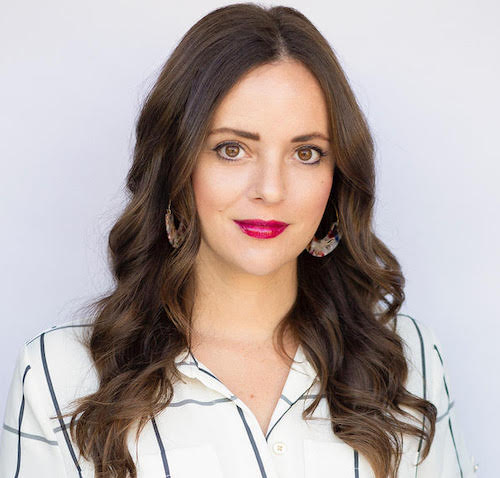When you find a hair product you like that works wonders for your hair, you might apply it liberally to get better results faster. But sometimes, you can treat your hair to too much of a good thing.
For example, if you've been packing on protein-enriched shampoos, conditioners, hair masks and serums when you wash and style your hair, your strands might be experiencing a protein overload. Read on to find out what exactly a protein overload is, how to avoid it and what products you really should be using to bring out the best in your hair.
Signs of Protein Overload
Even though the idea of having protein-enriched hair sounds healthy, too much protein can actually cause protein buildup, which can damage and weaken your hair shaft. In most cases, people experience a protein overload because they're trying to repair damaged hair, so it's important to know that too much protein can make the problems worse.
"Protein overload is the result of using too many protein conditioning products, such as shampoos and treatments," said physician Dr. Alice Williams. "Over time, this can lead to a buildup of protein on the hair. If you're experiencing a protein overload, your hair might feel dry, stiff and difficult to manage."
This kind of issue generally results from using excess protein in your hair care routine and is one that can be amended by using fewer of these products. Hair that's overloaded with protein is difficult to manage due to hair texture changes. You might also find yourself with brittle hair as a result.
"Your hair can become brittle, lose its elasticity and be prone to breakage," said Dr. Williams. "You might also notice that it's harder to style and that it doesn't seem to hold a curl as well as it used to."
Not everyone experiences protein buildup the same way, however. For some, it may be noticing their curl pattern has changed. For others, it might be experiencing more hair damage than before the use of protein treatments.
"One way you can tell if your hair is experiencing a protein overload is if it feels greasy," said dermatologist Dr. Cory Gaskins. "This is because the proteins in your hair can build up and make your hair feel heavy and oily. Another way you can tell if your hair is overloaded with protein is if you have split ends. This is because the proteins can make your hair brittle and more susceptible to breakage."
Dr. Gaskins explained that your hair might look dull and dry if it’s overloaded with protein because the proteins can cause your hair to lose its moisture. People with protein-sensitive hair are especially susceptible to protein overload hair issues.
Shop: GRO Revitalizing Shampoo & Conditioner Kit
How to Fix Protein Overload
Protein overload hair issues sound pretty frustrating, so how can you reverse protein overload if you're already dealing with it? The simple answer is to curb the patterns that are causing the protein buildup on your hair strands in the first place.
"If your hair is experiencing a protein overload, then you want to stop using protein-containing products," said Dr. Williams. "This means no more shampoo, conditioner, hair treatments or styling products that contain protein." Simply put, no more protein treatments, protein-rich hair products or even products that contain amino acids.
Consider your hair in a wounded state and in need of delicate care while it's experiencing protein buildup. Cleansing hair of excess proteins and moisturizing the hair properly are the best things you can do for protein-overloaded hair during this time of recovery.
The goal is to strip away excess protein with gentle products or essential oils, and then moisturize and hydrate hair with a deep or leave-in conditioner or a healing hair mask. Natural oils like coconut oil should only be used with the advice of a hair specialist or doctor, as they could worsen the issue.
"During this time, you can use a gentle shampoo and conditioner to cleanse and moisturize your hair, said Dr.Williams. "When you start using protein-containing products again, start with only a small amount and increase the amount gradually over time to see how your hair responds."
Adding just a small amount of protein-laden products back into your hair care routine and seeing how your hair reacts can help you determine your hair's protein sensitivity going forward.
Shop: GRO+ Advanced Collection
Here's How to Prevent Protein Overload
Protein-rich products and protein hair treatments are marketed to those with damaged hair or those who may be trying to repair dry hair, brittle hair or smooth the hair cuticle. The key is to find the right balance of protein versus moisture. Finding out your hair porosity is an important step in striking this right balance. Those with low-porosity hair are far more likely to experience buildup than people with high-porosity hair.
"The best way to avoid protein overload on your hair is to make sure that you are not using too much of it," said Dr. Williams. "Use only the recommended amount. Additionally, try to avoid using protein-containing products every day."
The following ingredients are all forms of protein that can be found in hair products.
- Hydrolyzed collagen
- Hydrolyzed rice protein
- Wheat quinoa
- Soy protein
- Keratin
- Oat flour
- Amino acids
For best results when it comes to your hair, you definitely don't want to be using an excess of protein products. "If you do need to use a protein-containing product every day, try to alternate it with a product that does not contain protein," said Dr. Williams. And if you evaluate your hair products and find that most of them contain some form of protein, Dr. Williams said, "Try scaling back and using only a few products at a time to see if that makes a difference."
Dr. Williams also suggested trying gentler protein treatments, like an avocado mask, instead of heavy-duty repair serums that might be overloading your locks. "Ultimately, finding the right balance of proteins for your hair type is key to avoiding any negative side effects," Williams said.
Also: 5 Vegan DIY Hair Masks You Need to Try
Try a More Natural Approach to Hair Care
Using moisturizing shampoos and a hydrating conditioner with more gentle proteins can help you prevent protein buildup and leave your hair cuticles in a much healthier state.
GRO Revitalizing Shampoo and Conditioner Kit contains a paraben-free, sulfate-free, cruelty-free, vegan shampoo and conditioner that are enhanced with clinically proven plant actives and our proprietary Karmatin™ (the first-of-its-kind vegan keratin). This gentle, vegan protein bonds to hair follicles and remains attached to strands even after rinsing which creates a longer-lasting effect similar to a keratin protein treatment without the chemicals.
Additionally, nourishing oils like wild-harvested marula oil, organic murumuru butter and ximenia oil help to condition, hydrate and combat damaging free radicals without leaving behind pore-blocking residue.
A Holistic Approach to Hair Health Is Best
If your hair is damaged, dry or brittle it could be that you're using too much protein, and a simple adjustment in your routine could help restore balance to your hair.
Beyond evaluating your hair care routine and choosing natural products that will help repair your hair, also strive to eat well, stay hydrated, exercise and reduce stress to bring out the best in your hair!
#include-related-slider#
More From VEGAMOUR
- Shop: Clean Hair Products
- How to Prevent Split Ends
- How to Figure Out Your Hair Porosity
- VEGAMOUR's GRO vs. GRO+ Advanced Products: Which Should You Choose?
Photo credit: Artem Podrez/Pexels




















